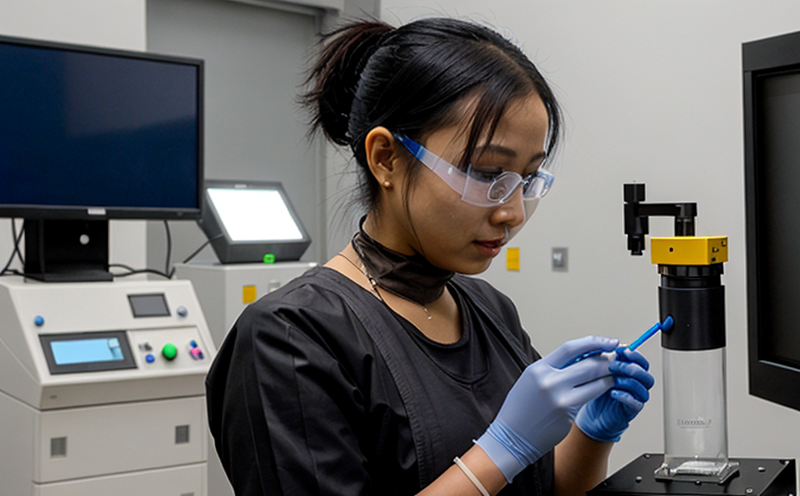ASTM D5733 Tear Resistance of Membranes with Nanoparticle Emissions
The ASTM D5733 standard provides a method for determining the tear resistance of flexible materials, including membranes. In the context of nanomaterials testing, this method is particularly relevant when evaluating the integrity and durability of membranes used in various applications, especially those involving nanoparticles.
Membranes with nanoparticle emissions play a crucial role across numerous industries such as water treatment, air filtration, and environmental protection. Ensuring the tear resistance of these materials is vital for maintaining their performance and longevity. This testing method helps ensure that membranes can withstand the stresses encountered in real-world applications without compromising their integrity.
The ASTM D5733 test involves subjecting a specimen to controlled tearing forces, measuring the energy absorbed during the tearing process. For nanomaterials, this is particularly important as these materials often have unique physical and chemical properties that can affect tear resistance.
Specimen preparation for this test typically includes cutting samples according to specified dimensions and ensuring they are free from defects that could influence the results. The testing apparatus used must be capable of applying controlled forces in a consistent manner, which is critical given the precision required with nanomaterials.
The results of ASTM D5733 testing provide valuable insights into the durability and reliability of membranes containing nanoparticles. This information can be crucial for quality managers, compliance officers, R&D engineers, and procurement teams working in sectors that rely on robust membrane technology.
| Standard | Description |
|---|---|
| ASTM D5733 | Standard Test Method for Tear Resistance of Flexible Materials Using the Z-Notch and Lap Joint Specimens. |
Applied Standards
The ASTM D5733 standard is widely recognized for its rigorous testing methodology, which ensures accurate and reliable results. This method is particularly applicable to the tear resistance testing of membranes with nanoparticle emissions.
| Standard | Description |
|---|---|
| ASTM D5733 | Standard Test Method for Tear Resistance of Flexible Materials Using the Z-Notch and Lap Joint Specimens. |
Eurolab Advantages
EuroLab offers unparalleled expertise in nanomaterials testing, ensuring that your samples receive the most accurate and reliable results. Our team of highly skilled professionals is dedicated to providing comprehensive support throughout the entire testing process.
- Comprehensive Range of Testing Services
- State-of-the-Art Laboratory Equipment
- Experienced Technical Staff
- Dedicated Client Support
International Acceptance and Recognition
The ASTM D5733 standard is internationally recognized for its robust testing methodology. This ensures that the results from our tests are widely accepted across various jurisdictions, making it easier for you to comply with global regulatory requirements.
- ASTM D5733 is an ISO/IEC 17025-accredited standard.
- The ASTM International (formerly American Society for Testing and Materials) is a globally recognized organization that sets standards for materials, products, systems, and services in all fields of science and technology.





